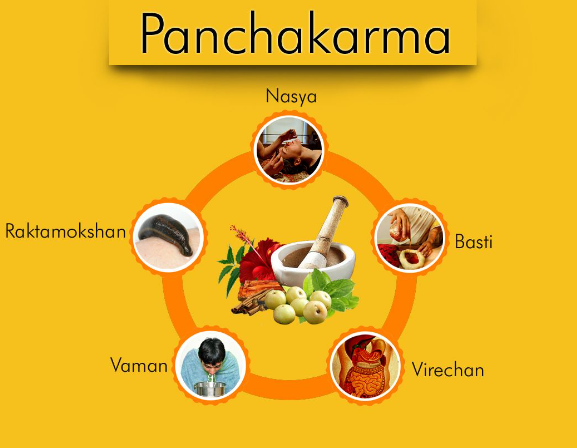Discover the profound benefits of panchakarma, an ancient Ayurvedic detoxification and rejuvenation therapy. Learn about its components, process, and how it promotes holistic well-being.
Panchakarma, an ancient Ayurvedic healing modality, has been practiced for centuries in India and is gaining popularity worldwide for its profound benefits to physical, mental, and spiritual health. Derived from Sanskrit, “Panchakarma” translates to “five actions” or “five treatments,” reflecting its comprehensive approach to detoxification and rejuvenation. This holistic therapy aims to restore the body’s natural balance by eliminating toxins, strengthening the immune system, and promoting overall well-being. Let’s delve deeper into the essence of it and its therapeutic significance.
Understanding Panchakarma
Panchakarma is a systematic and personalized approach to cleansing and rejuvenating the body, mind, and spirit. It is based on the principles of Ayurveda, the ancient Indian system of medicine that emphasizes the balance between the body, mind, and environment for optimal health. According to Ayurveda, imbalances in the body’s three doshas (Vata, Pitta, and Kapha) lead to diseases and discomfort, and it aims to restore their equilibrium.
Also read-Revitalize Your Health With The Body Reset Diet
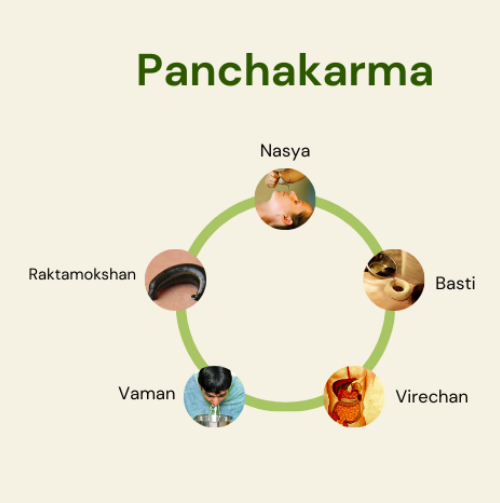
The Five Actions of Panchakarma
Panchakarma comprises five primary therapeutic actions tailored to an individual’s unique constitution and health concerns:
- Vamana (therapeutic emesis): This process involves controlled vomiting to eliminate excess Kapha (phlegm) from the upper body.
- Virechana (Purgation Therapy): Virechana aims to cleanse the digestive tract and remove excess pita (bile) by inducing controlled bowel movements through herbal laxatives.
- Basti (Enema Therapy): Basti involves the administration of herbal decoctions and oils through the rectum to alleviate vata (air) imbalances and cleanse the colon.
- Nasya (Nasal Administration): Nasya therapy focuses on clearing the nasal passages and balancing the doshas by administering herbal oils or powders through the nostrils.
- Raktamokshana (Bloodletting): Although less commonly practiced today, Raktamokshana aims to purify the blood by removing toxins through techniques like leech therapy or venesection.

The Panchakarma Process
Before undergoing panchakarma, individuals undergo a comprehensive assessment by an Ayurvedic practitioner to determine their prakriti (constitution) and vikriti (current imbalances). Based on this assessment, a personalized treatment plan is devised, encompassing dietary modifications, herbal supplements, and lifestyle recommendations alongside the therapies.
The duration of it varies based on individual needs but typically spans several days to a few weeks. During the process, individuals are advised to follow a specific diet, undergo daily therapeutic treatments, and engage in practices like meditation and yoga to enhance the detoxification process and promote relaxation.
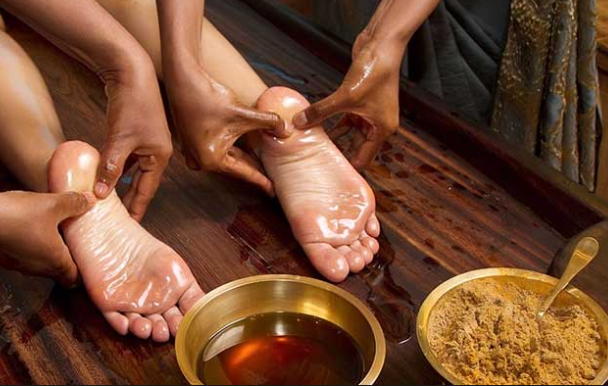
Benefits of Panchakarma
Panchakarma offers a multitude of benefits for physical, mental, and emotional well-being, including:
- Detoxification: By eliminating accumulated toxins from the body, it cleanses the tissues and organs, promoting optimal physiological functioning.
- Rejuvenation: Through nourishing therapies and lifestyle modifications, it rejuvenates the body, enhancing vitality and promoting longevity.
- Balancing Doshas: By addressing imbalances in the doshas, it restores harmony within the body, alleviating the symptoms of disease and promoting holistic health.
- Stress Reduction: The holistic nature of it, including relaxation techniques and lifestyle recommendations, helps reduce stress and promote mental clarity and emotional balance.
- Improved Digestion: Its therapies cleanse the digestive tract, improve metabolism, and enhance nutrient absorption, leading to better digestion and assimilation of nutrients.
- Enhanced Immunity: By eliminating toxins and strengthening the body’s natural defenses, Panchakarma supports immune function, reducing the risk of infections and diseases.
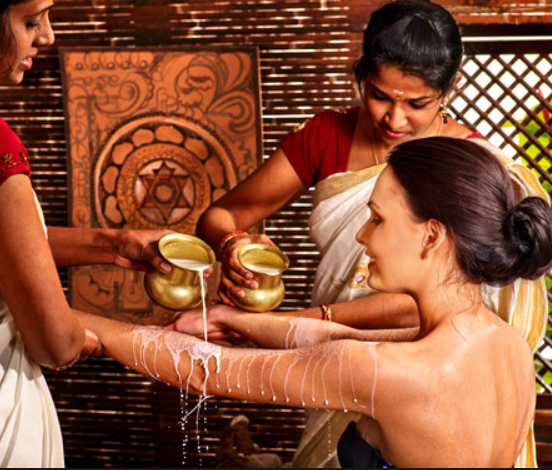
Conclusion:
Panchakarma embodies the essence of holistic healing, offering a comprehensive approach to detoxification, rejuvenation, and well-being. Rooted in the ancient wisdom of Ayurveda, this transformative therapy addresses the root causes of imbalance, promoting harmony within the body, mind, and spirit. Whether seeking relief from specific health concerns or aiming to enhance overall vitality, panchakarma provides a profound pathway to optimal health and wellness in today’s modern world.
Incorporate panchakarma into your wellness routine and experience the profound benefits of this ancient healing art.
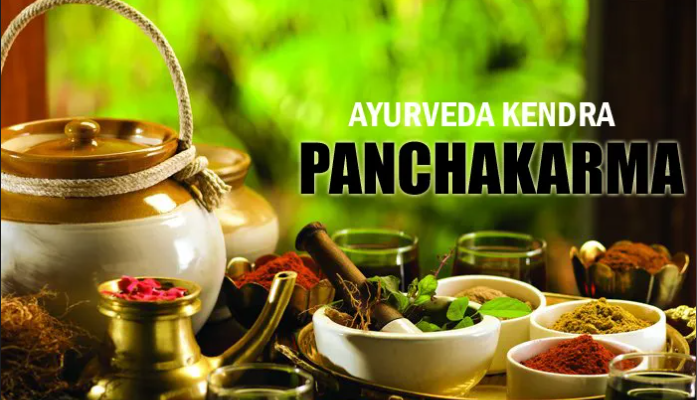
Also read: Unlocking The Fountain Of Youth: Exploring Rejuvenation Therapy
images source: Google
Disclaimer: The opinions and suggestions expressed in this article are solely those of the individual analysts. These are not the opinions of HNN. For more, please consult with your doctor







